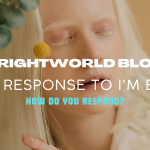Relationship
Ultimate Dirty Text To Her

Table of Contents
Dirty Text To Her: The Ultimate Guide
Communication is the key to every relationship, whether it’s deep conversations or playful banter. But sometimes, a little heat can take your connection to the next level. If you’re looking to spice things up, dirty texting can be a fun, intimate way to connect with your partner and ignite that spark of passion. Whether you’re in a long-distance relationship, want to keep things exciting during the day, or just looking to flirt on a more intimate level, sending “Dirty Text To Her” can be a powerful tool to build s£xu@l tension and express desire.
This comprehensive guide will walk you through everything you need to know about sending diirty texts to her, from starting the conversation, building anticipation, creating emotional connection, to navigating boundaries with respect and care.

Understanding Dirty Texting: The Essentials
Dirty texting, at its core, is about s£xu@l communication through words. It’s a way to convey your attraction, desires, and fantasies to your partner in a manner that feels exciting and int¡mate. However, it’s important to approach dirty texting with care and consideration, as everyone’s boundaries and preferences are different.
Here’s what dirty texting can do for your relationship:

1. Builds Anticipation:
A well-placed text can create anticipation for future physical encounters, making the experience more exciting when you’re finally together.

2. Keeps the Fire Alive:
In long-term relationships, dirty texting can keep the fire burning, reminding your partner of your physical attraction and maintaining the chemistry.
3. Enhances Int¡macy:
It opens the doors to deeper communication about s£xu@l desires and fantasies, strengthening emotional and physical int¡macy.
4. Boosts Confidence:
Sending and receiving dirty texts can increase your confidence and make you feel desired, attractive, and empowered.
How to Start Dirty Texting: Setting the Tone

Before diving into the deeper, more expl¡cit messages, it’s important to warm up the conversation and set the tone. Start with fl¡rting and suggestive language rather than jumping straight into anything expl¡cit. This ensures that both you and your partner are comfortable and on the same page.
1. Start Slow:
Begin with compliments or suggestive language that hints at your desires without being overt. For example:
- ★ – “I can’t stop thinking about how amazing you looked last night.”
- ★ – “You’re on my mind, and I can’t help but imagine the next time we’re alone.”
2. Build the Mood:
Gradually increase the heat by introducing more playful, s£xu@l language. It’s like turning the volume up on desire, one notch at a time.
- ★ – “I love the way your body feels against mine… I can’t wait to feel that again.”
- ★ – “I have a little fantasy I’ve been thinking about… Want to hear it?”
3. Check for Comfort:
Pay attention to her responses. If she reciprocates with excitement, continue. If she seems hesitant or changes the subject, it might be best to scale back or check in with her about her comfort level.
Crafting the Perfect Dirty Text To Her

Creating the perfect dirty text to her is an art. The key is to strike a balance between being direct about your desires while leaving room for imagination. You want to tease, suggest, and evoke emotions while building anticipation.
Here are some strategies to help you craft the perfect text:
1. Descriptive Language
Use vivid, descriptive language to paint a picture of what you’re thinking. Describe sensations, actions, and feelings. Instead of saying something like, “I want you,” try to elaborate on it with more sensual details:
- ★ – “I can still feel your l¡ps on my skin, your breath against my neck… the way your touch made my heart race.”
2. Tease and Tempt
One of the most effective dirty texting techniques is teasing. You want to create curiosity and suspense. Tempt her with ideas of what might happen when you’re together.
- ★ – “I have a few n@ughty thoughts I’ve been keeping to myself… Want to know what I’ve been imagining?”
- ★ – “If I could, I’d pull you close right now and whisper all the things I want to do to you in your ear.”
3. Create a Fantasy
Fantasy texts are about exploring desires that may or may not ever come true. This is an opportunity to share fantasies in a safe, playful way.
- ★ – “I keep thinking about what it would be like to be alone with you in a secluded cabin, no interruptions, just us…”
- ★ – “Imagine us in a steamy hotel room, away from everything. What would happen next?”
4. Engage Her Imagination

Engage her imagination by asking her questions that encourage her to join in the fun. This makes the conversation interactive and inclusive of her desires.
- ★ – “What would you do if we had the whole night to ourselves?”
- ★ – “Tell me what you’d want me to do to you if I were there right now.”
5. Balance Sènsuality and Expl¡citness
Balance is key in dirty texting. Some people enjoy direct, explicit messages, while others prefer a more subtle and sènsual approach. Tailor your messages based on her comfort level and what she responds to. For example:
- ★ – Sènsual: “I can’t stop thinking about how your l¡ps felt on mine.”
- ★ – Explic¡t: “I can’t wait to feel your b0dy under mine, moving together, skin to skin.” OMG
Navigating Boundaries: Respect and Consent

As with any form of s£xu@l communication, consent is paramount. Never assume that your partner is comfortable with dirty texting just because you are. It’s crucial to read her responses carefully and ensure that she is enthusiastic about the direction of the conversation.
Here’s how to navigate boundaries:
1. Pay Attention to Her Responses:
Is she responding positively and reciprocating your energy? If so, you’re on the right track. If her responses become shorter, less engaged, or she changes the topic, take that as a sign to dial it back or check in.
2. Respect Her Boundaries:
If she expresses discomfort or asks you to stop, respect that immediately. Dirty texting should be fun for both parties, and it’s important that it never feels forced or uncomfortable.
3. Consent is S*xy:
Consent isn’t just important—it can also be s*xy. You can incorporate consent into your dirty texts in a playful way:
- ★ – “I’d love to hear more about what you want… Tell me what turns you on.”
- ★ – “I’ve been thinking about k¡ss¡ng you everywhere… Would you like that?”
When and Where to Send Dirty Texts

Timing is everything when it comes to dirty texting. Sending these messages at the right time can enhance the connection, while poorly timed messages can create awkward situations.
Here are some ideal times to send dirty texts:
1: When you’re apart:
Long-distance or busy days are perfect for sending dirty texts, as they build anticipation for the next time you’ll be together.
2: At night:
Late-night texting can create an int¡mate and private space for both of you to explore your desires without distractions.

3: During a playful moment:
If the conversation is already fl¡rty or playful, it’s an excellent opportunity to slip in a suggestive text.
Avoid these times for dirty texts:

1: During work hours or meetings:
Sending expl¡cit texts during her workday might not be the best idea unless you know she has the freedom to enjoy them. Respect her schedule and focus.
2: When she’s stressed or distracted:
Timing is key—if she’s dealing with something stressful, it might not be the best time to introduce s£xu@l tension into the conversation.
Conclusion: Making Dirty Texting Work for Your Relationship

Dirty texting, when done with respect, creativity, and consideration, can be a powerful tool to strengthen int¡macy, create anticipation, and maintain s£xu@l chemistry in a relationship. By understanding your partner’s comfort zone, being descriptive and playful, and using timing to your advantage, you can craft dirty texts that excite, engage, and bring you closer together.
Always remember that communication and consent are the foundation of successful dirty texting. It’s not just about the words you send but how they make her feel. Approach the conversation with sènsitivity, listen to her responses, and enjoy the journey of building excitement and connection through words. Thank you for your time.
Relationship
Signs an Emotionally Unavailable Man is in Love with You

Table of Contents
Signs an Emotionally Unavailable Man is in Love with You
When you find yourself drawn to a man who seems distant or difficult to connect with emotionally, understanding his feelings can be a complex and confusing task. Emotionally unavailable men tend to guard their emotions and avoid vulnerability, making it challenging for their romantic partners to recognize signs of genuine affection. Despite their emotional barriers, these men can and do fall in love. But their love may manifest differently than that of someone more open with their emotions. This comprehensive guide will explore the subtle, and sometimes indirect, signs that an emotionally unavailable man may be in love with you. Let’s go.

Signs an Emotionally Unavailable Man is in Love with You
1. He Makes Efforts to Open Up Emotionally (Even if Only in Small Doses)
Emotionally unavailable men often struggle with expressing their feelings. They tend to suppress their emotions, either out of fear of vulnerability, past trauma, or discomfort with intimacy. However, when such a man is in love, you might notice small but significant attempts to open up. He may share personal stories, talk about his past, or express his thoughts on important matters, even if he does so cautiously.

These moments of vulnerability, even if infrequent, are important signs. For an emotionally unavailable man, opening up—even slightly—requires considerable effort. His willingness to let you into his emotional world is a strong indicator that he cares deeply for you.
2. He Seeks to Spend Quality Time with You

One of the ways emotionally unavailable men express love is through their actions. They may not be great at verbalizing affection, but they show it by wanting to be in your presence. If he initiates spending time with you—whether it’s through activities you both enjoy, going on dates, or simply hanging out—this can indicate that he values your company.
The fact that he prioritizes you, despite his usual preference for emotional distance, suggests that you hold a special place in his life. Emotionally unavailable men are often more comfortable being alone or detached, so when he chooses to be around you, it’s a strong sign of emotional investment.
3. He Shows Acts of Service

For some emotionally unavailable men, love is expressed more through actions than words. He might not tell you how he feels, but he may go out of his way to help you with tasks, fix something for you, or provide support in practical ways. These acts of service are his way of demonstrating care and love, even if he finds it difficult to articulate his emotions.
This could include picking you up from work, fixing something that’s broken, or supporting you during difficult times. Such acts are his way of showing that he cares for your well-being, even if he struggles to express it emotionally.
4. He Becomes Protective Over You
Another sign that an emotionally unavailable man is in love is when he becomes protective of you. He may not outwardly display jealousy or possessiveness (as some emotionally available men might), but his behavior will subtly shift to ensure that you’re safe and comfortable. This might mean offering guidance, stepping in when he senses you’re in a difficult situation, or making sure you’re taken care of when you’re unwell or stressed.
This form of protectiveness reflects a deep concern for your happiness and safety—key indicators of love, even if they are not communicated verbally.
5. He Prioritizes You Over Others

Emotionally unavailable men often have boundaries that make it hard to let people in. However, when they do let someone in—especially a romantic partner—it can be a significant shift in their behavior. If he prioritizes you over his friends, family, or other commitments, it’s a sure sign that you are important to him.
This could show up in small ways, such as adjusting his schedule to spend time with you, seeking your opinion on decisions, or ensuring that your needs are considered in his life. It reflects that, despite his emotional distance, he is actively making space for you in his world.
6. He Tries to Fix Issues in the Relationship
Emotionally unavailable men often shy away from confrontations or emotional discussions. If he is willing to address issues in your relationship, especially if he’s initiating these conversations, it is a positive sign. This indicates that he cares enough to invest in making the relationship work, even if it means stepping out of his comfort zone.

He might not be as emotionally articulate as you’d like, but his willingness to solve problems, listen to your concerns, or try to change problematic behaviors shows his commitment. In his own way, he’s showing that your relationship matters to him.
7. He Makes Physical Affection More Meaningful
Though emotionally unavailable men can often be distant, physical affection is one area where they may communicate their feelings more freely. If he begins to show you more tender, non-sexual touches, such as holding your hand, hugging you longer, or cuddling, it’s likely his way of expressing emotional closeness.
Physical affection can be easier for some emotionally unavailable men to express than verbal communication. If he shows increased or more meaningful physical contact, it’s a strong indicator that his emotional barriers are starting to lower around you.
8. He Expresses Concern About Losing You
While emotionally unavailable men may not readily admit their feelings, fear of losing you can push them to reveal more of their emotional depth. If he’s worried about you pulling away or leaving, he may express concern or ask questions that reveal his underlying fears.
This could manifest as him checking in more often, asking if you’re happy in the relationship, or even subtly showing signs of jealousy. These behaviors reflect a man who values the relationship and is starting to acknowledge his emotional attachment.

9. He Starts Making Future Plans with You
Emotionally unavailable men tend to live in the moment and avoid making long-term plans, especially with a partner. When he starts discussing future plans—whether that’s vacations, holidays, or just upcoming weekends—he’s indicating that he sees you as a part of his future. This shift shows that he is starting to think more seriously about the relationship and where it might lead.
These plans don’t have to be grand or involve major life decisions. Even smaller gestures, like booking tickets for an event months down the line, show that he is envisioning you as part of his life long-term.
10. He Stays Even When Things Get Tough
Emotionally unavailable men often withdraw when emotions get high or the relationship faces challenges. If he stays with you through tough times, supports you when things are difficult, or works with you to overcome obstacles, it’s a sign that he’s emotionally invested.
His staying power during hard times shows that he’s willing to push past his own discomfort with emotions for the sake of the relationship. His commitment to staying and working through challenges reflects a deeper level of love and care.
Conclusion

An emotionally unavailable man may not express his love in ways that are typical or obvious, but that doesn’t mean he doesn’t feel deeply. Love for these men can look like small steps toward vulnerability, actions over words, and commitment over emotional expression. By paying attention to the subtle changes in his behavior—such as prioritizing you, protecting you, or making future plans—you can gain a better understanding of his true feelings. Remember, these men need patience and time to break down their emotional walls, and recognizing these signs can help you navigate your relationship with clarity and confidence. Better still, pay more attention to grab this signs quickly when you see one.
Relationship
Women Who Have Affairs and Blame It on the Husband

Table of Contents
Women Who Have Affairs and Blame It on the Husband
Infidelity is a complex and painful issue in relationships. When a partner steps outside the boundaries of a committed relationship, it can lead to feelings of betrayal, hurt, and confusion. While affairs happen for a variety of reasons, there’s a pattern in some relationships where the woman having the affair places the blame on her husband. This dynamic brings to light deeper emotional and psychological aspects of the relationship, as well as societal factors that shape such behaviors. In this article, we will delve into the causes, psychology, and implications behind women who have affairs and attribute the blame to their husbands. So follow me let’s ride on together.

Understanding Infidelity
Infidelity can be defined as a violation of trust within a rômantic or marital relationship, where one partner engages in int!mate behavior (physical or emotional) with someone outside of their primary relationship. Affairs can be physical, emotional, or both. Studies have shown that both men and women engage in extramarital affairs, though the motivations and justifications often differ between genders.
Women may engage in affairs for reasons such as emotional neglect, a desire for excitement, a lack of int!macy, or a search for validation. However, what makes this situation particularly complex is when the unfaithful partner blames their infidelity on their spouse. This deflection of responsibility often signals deeper issues within the relationship and the individual’s emotional health.
Common Reasons Why Women Blame Their Affairs on Their Husbands
1. Emotional Neglect or Loneliness
One of the most cited reasons for infidelity, especially by women, is emotional neglect. Women in long-term relationships may feel emotionally disconnected from their husbands, leading them to seek emotional support and connection elsewhere. In such cases, the affair is seen as a response to unmet emotional needs. When caught or confronted about their infidelity, these women may point to their husband’s lack of emotional availability as the reason for their actions, arguing that they wouldn’t have cheated if their emotional needs were met.
Example: A woman may say, “If he had only listened to me and spent more time with me, I wouldn’t have looked elsewhere for comfort.”

2. Lack of Int!macy and Physical Affection
Many women who cheat report feeling s£xually dissatisfied in their relationships. Whether due to a fading s£xual connection, mismatched lib!dos, or a lack of affection, these women may begin to look outside the marriage for physical or s£xual fulfillment. In such cases, the husband may be blamed for not being attentive or passionate enough, thus “forcing” the woman into the arms of someone else.
Example: A woman might argue, “He stopped touching me or making me feel desirable, so I found someone who did.”
3. Feeling Unappreciated or Undervalued
In many marriages, women may feel like they carry a disproportionate amount of emotional labor, domestic responsibilities, or child-rearing duties. When these efforts go unnoticed or unappreciated, resentment can build. This resentment may drive some women to seek affirmation from someone outside the marriage who recognizes their worth. When caught, they might justify their affair by pointing to the lack of appreciation they feel at home.
Example: A woman might say, “He never appreciated everything I did for him and the family. I found someone who did.”
4. Retaliation for Past Hurts or Betrayals
In some cases, women may cheat as a form of retaliation for their husband’s previous actions, such as infidelity, lies, or other forms of betrayal. When women feel wronged or deeply hurt by their partners, they may use infidelity as a way to “even the score” or to regain power in the relationship. Here, the blame is entirely shifted to the husband’s past behavior, as the affair is framed as a response rather than a choice.
Example: A woman might argue, “He cheated on me first, so I thought it was only fair.”

5. Dissatisfaction with the Relationship
Some women engage in affairs because they feel a deep dissatisfaction with their relationship but lack the courage or clarity to end it. Instead of addressing their feelings of unhappiness head-on or seeking counseling, they may enter into an affair to find excitement or validation elsewhere. When confronted, they may blame the husband for creating an environment that made them unhappy, rather than taking responsibility for their own actions.
Example: A woman may say, “I’ve been unhappy for years, and he never seemed to care. This affair made me feel alive again.”
6. External Pressure and Societal Narratives
Women are often subject to societal narratives about what makes a “good” or “bad” wife. In relationships where the societal expectation is for women to be the emotional caretakers, they may feel immense pressure to keep the relationship going, even if their needs are not met. When these needs aren’t met, instead of recognizing the possibility of ending the relationship or seeking therapy, some women may turn to infidelity as an outlet while blaming their partner for pushing them to this point.
7. Projection and Defense Mechanism
Some women may blame their husbands as a form of psychological projection. Projection is a defense mechanism where a person attributes their own unacceptable thoughts or feelings onto someone else. By blaming their husbands, they may be trying to alleviate their own guilt or shame about their affair. This often stems from an inability to take personal responsibility and face the emotional consequences of their actions.
Example: A woman may say, “It’s his fault I cheated, not mine. If he were a better husband, I wouldn’t have done this.”

The Impact of Blame Shifting on the Relationship
Blaming a spouse for one’s affair can have devastating effects on the relationship. It prevents honest communication and healing, as the root causes of the affair are not addressed. Instead, the focus shifts to assigning blame, which can lead to further resentment, mistrust, and emotional distance.
When the woman blames her husband, he may feel confused, hurt, or guilty, even if he wasn’t responsible for the affair. This dynamic makes it difficult for the couple to move forward, as the unfaithful partner isn’t taking full responsibility for their actions, and the betrayed partner may feel unfairly burdened by the blame.
Emotional Fallout for Both Partners
- For the Woman: Blaming the husband may provide a temporary sense of justification, but it prevents deeper introspection. Without addressing the underlying issues or taking responsibility, the woman may continue to feel unfulfilled or disconnected, whether or not she stays in the marriage.
- For the Husband: Being blamed for infidelity can be emotionally damaging. He may question his self-worth, feel guilty for not meeting his partner’s needs, or struggle to trust again. It can also lead to a breakdown in communication, as the husband may become defensive or shut down emotionally.
The Role of Therapy and Communication
To recover from an affair and rebuild the relationship, both partners need to engage in honest and open communication. Couples therapy can be an invaluable tool in helping both parties understand the underlying reasons for the affair and work toward healing. Therapy encourages taking responsibility for one’s actions, addressing unmet needs, and fostering empathy and understanding.
Women Who Have Affairs and Blame It on the Husband.
Conclusion

Women who have affairs and blame it on their husbands are often dealing with deeper emotional, psychological, and relational issues. While it’s easy to shift blame, true healing and growth come from taking responsibility for one’s actions and working through the issues that led to the affair. Affairs don’t happen in a vacuum, and both partners must examine the dynamics of the relationship to move forward. Whether that means staying together or parting ways. Through introspection, communication, and therapy, it’s possible to overcome infidelity and emerge stronger, either as individuals or as a couple.
But remember, cheating on someone your partner is very bad. Instead of cheating, slide to Bright Tobias on Facebook to book a session with me.
Relationship
Heart Forward Counselling

Table of Contents
Heart Forward Counselling
In today’s fast-paced and ever-changing world, mental and emotional well-being has become a significant focus for many. As people seek healing, growth, and balance, different approaches to therapy and counseling have emerged to cater to a variety of needs. One of the most effective and compassionate forms is “Heart Forward Counselling.” This approach emphasizes connection, empathy, and authenticity, placing the heart at the center of the healing process.

Heart Forward Counselling represents a shift from traditional methods by encouraging clients to lead with their emotional experiences while being guided by a professional who creates a safe and non-judgmental space. This form of therapy empowers individuals to confront and process their emotions in a way that prioritizes vulnerability, empathy, and self-compassion. Let’s dive deeper into what Heart Forward Counselling entails, its core principles, techniques, benefits, and how it differs from other counseling approaches.
What is Heart Forward Counselling?

Heart Forward Counselling is a therapeutic model that focuses on emotional connection, empathy, and authentic human interaction. Unlike traditional therapies that may emphasize cognitive understanding or analytical approaches, this method is centered on the heart—both figuratively and literally. It draws from humanistic psychology and person-centered therapy, with the idea that individuals heal best when they feel understood, connected, and supported on a deep emotional level.
At its core, Heart Forward Counselling prioritizes the following:
- Emotional Vulnerability: Clients are encouraged to explore their deepest feelings, even those that might be uncomfortable or painful.
- Empathy and Compassion: The counselor actively engages with the client through empathetic listening, ensuring that the client feels seen and heard.
- Authenticity: Both the counselor and client are invited to be genuine in their interactions, fostering a transparent and open therapeutic relationship.
- Connection over Diagnosis: This approach prioritizes human connection and emotional growth over simply diagnosing and treating symptoms.
Core Principles of Heart Forward Counselling
- Connection is Healing: At the heart of Heart Forward Counselling is the belief that healing happens through authentic connection. The therapeutic relationship is not hierarchical, where the therapist is the expert and the client is the patient. Instead, it is a mutual partnership where both counselor and client engage in the healing process.
- The Power of Vulnerability: Vulnerability is seen as a strength, not a weakness. By opening up about fears, traumas, and deeply rooted emotions, clients can begin to release the weight of unprocessed feelings. This allows space for emotional healing to begin.
- Empathetic Understanding: The counselor’s role is to offer empathetic listening without judgment. This creates a sense of safety where the client can explore their feelings without fear of criticism or dismissal. Empathy helps the client feel validated, reducing feelings of isolation or shame.
- Authenticity and Transparency: Heart Forward Counselling fosters an environment where both the counselor and client can be their true selves. The therapist is encouraged to show authenticity, and the client is given the same opportunity, breaking down barriers and facilitating deeper emotional exploration.
- Holistic Approach: The mind, body, and emotions are interconnected in this counseling approach. The therapist takes into consideration all aspects of the client’s life, understanding that emotional, mental, and physical health are deeply intertwined.
Techniques Used in Heart Forward Counselling

- Deep Listening and Reflective Feedback: The counselor practices active listening, giving the client space to speak freely while offering reflective feedback that helps the client gain deeper insights into their emotional experiences.
- Emotion-Focused Therapy (EFT): A common technique within Heart Forward Counselling, EFT emphasizes understanding and transforming emotional responses. The therapist helps the client identify negative emotions and work through them to create positive emotional shifts.
- Mindfulness and Presence: Mindfulness exercises are often incorporated to encourage the client to stay present and connected to their emotions, which helps prevent emotional avoidance or repression.
- Non-Verbal Communication: Since emotions are often communicated non-verbally, counselors pay attention to body language, tone of voice, and facial expressions to better understand the client’s emotional state.
- Therapeutic Journaling: Clients are encouraged to engage in journaling exercises, which allow them to reflect on their emotions outside of sessions. This practice helps to deepen emotional awareness and track progress over time.
- Compassionate Inquiry: This is a process where the therapist asks gentle, open-ended questions that allow the client to explore the roots of their emotional experiences and unresolved issues.
Benefits of Heart Forward Counselling

- Emotional Healing: By leading with emotions, clients are able to process trauma, grief, and other difficult experiences in a safe, supportive environment. This can lead to significant emotional breakthroughs and a reduction in emotional suffering.
- Improved Relationships: As clients become more in touch with their own emotions and needs, they also develop greater empathy and understanding for others. This can result in healthier and more fulfilling relationships.
- Increased Self-Compassion: Heart Forward Counselling encourages clients to be kind to themselves and to view their emotional struggles through a lens of compassion rather than self-criticism.
- Greater Self-Awareness: By focusing on emotional experience, clients often gain deeper insights into themselves, which can lead to personal growth and improved decision-making.
- Safe Space for Exploration: One of the most profound benefits of this approach is the creation of a safe, non-judgmental space where clients can explore all aspects of their emotional lives without fear of rejection or shame.
How Heart Forward Counselling Differs from Traditional Therapy
- Emotion-Centered vs. Solution-Centered: Traditional therapies often focus on identifying and solving problems, such as anxiety or depression. Heart Forward Counselling, on the other hand, centers the emotional experience itself, allowing solutions to arise organically through emotional understanding.
- Human Connection vs. Clinical Distance: In traditional therapy, there may be a more formal or clinical distance between the therapist and client. Heart Forward Counselling embraces a more humanistic approach where genuine connection is seen as the foundation of healing.
- Collaboration vs. Authority: Many traditional models place the therapist in a position of authority. Heart Forward Counselling views the therapeutic relationship as a collaboration between two equals, each contributing to the healing process.
When to Seek Heart Forward Counselling

- Emotional Trauma: If you have experienced trauma and are struggling to process the emotions that come with it, Heart Forward Counselling may provide the emotional support you need to begin healing.
- Relationship Issues: If you are having difficulty connecting with loved ones, struggling with empathy, or feeling emotionally distant, this approach can help you develop deeper emotional bonds.
- Self-Compassion and Growth: If you are looking to improve your relationship with yourself, developing greater self-compassion and emotional awareness, Heart Forward Counselling offers tools for personal growth.
- Life Transitions: Whether it’s a major life change, such as divorce, loss of a loved one, or a career shift, Heart Forward Counselling can help you navigate the emotional challenges that come with these transitions.
Conclusion

Heart Forward Counselling is a transformative therapeutic approach that places emotional experience and empathy at the center of the healing process. By prioritizing connection, vulnerability, and authenticity, this approach allows individuals to explore their emotions in a safe and supportive environment. Whether dealing with trauma, relationship challenges, or personal growth, Heart Forward Counselling offers a compassionate and human-centered path to emotional wellness. Through deep listening, mindfulness, and empathetic engagement, clients are empowered to heal, grow, and thrive on their emotional journey.
If you’re seeking therapy that honors your emotions and encourages deep human connection, Heart Forward Counselling could be the path to the emotional healing and balance you’ve been searching for.

Send me a private DM on FACEBOOK to book a session with me.



























